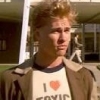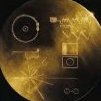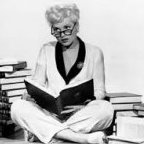Leaderboard
Popular Content
Showing content with the highest reputation on 05/13/19 in all areas
-
2 pointsI'm still down for it. Plus I'm pretty sure my week is coming up soon. One thing that might help is, if you're making the between week thread, have a list of who the next couple people are to pick. That way it's not sprung on someone who isn't ready or they can bow out if they are busy that week.
-
2 pointsI'm still into it! Let us watch movies. TOGETHER. Maybe even ones with an "I Want" song in the first 10-20 minutes!
-
2 pointsAs a theatre nerd I am into musicals (except most Webber and his imitators) and would be delighted to suggest a thing or two.
-
2 pointsHey all! I think it might be time to do a little Spring Cleaning I love Musical Mondays. It’s been something I look forward to every week since we started this thing. That being said, I realize that many of us (including myself) are in a far different place than where we were 2 1/2 (???) years ago. In the past year, more and more people have dropped out. And that’s totally fine. There’s never been a hard rule regarding participation. Everyone has always been welcome and everyone has been free to drop in as they please and life allowed. That being said, it’s been difficult for me to find the time to create these threads (not that I mind) much less track down people when it’s their turn. And that’s not a judgment, at all. I totally get it. Being able to watch movies in this way really is a luxury that not many people have time for anymore. So, I guess it’s time to re-evaluate. The obvious question is: do we want to continue or has Musical Mondays run its course? Personally, I would hate for it to end, but if the interest isn’t there, then there’s no reason to continue. If we want to continue, I feel like we should kind of re-sign up. Does that sound fair? That way the people who want to keep going can. And, please, everyone is absolutely welcome forever (Once in MM, always in MM) I just feel like this will cut down some of the “Who’s week is it?” stuff. And when people have the free time again in the future, they are more than welcome to join back up again. Sound fair? I am resigning up. Please let me know if you would like to as well.
-
2 pointsI'm kind of sad this didn't garner more discussion. I loved Cold War, though I will agree that it is light on plot. It felt more of a tone poem than an epic love story. But I found the leads completely captivating, and Zula's jazz solo stuck in my head for weeks. I don't really have much of a defense for what's been said or why it failed to land. I guess I like it despite it's shortcomings. Also, RIP Calamity Jane
-
2 pointsWas anyone else bothered by the name China Doll? I feel like China is the one place where that name definitely doesn't work. Nobody was calling Mei Gan China Hands. If I understand the plot of this movie (15% chance of that, and only after reading a plot synopsis) Belloq hired Sean Penn for this mission solely because he looked like China Doll's ex-lover. Belloq wanted the jewels in addition to the opium that he had all along and thought the way to get them was through China Doll's heart. So what led him to that conclusion? During their pillow talk after the 11 major and 9 minor positions China Doll said something like "You're alright but my ex-lover was really something and if I ever found anyone that even looked like him I'd do anything. Here let me show you a picture of him."???
-
2 pointsThis movie was on cable the weekend it was announced, what is going on people?!!!
-
2 pointsI think the metaphor of a “Cold War” was pretty well done, but nothing about the characters drew me in to the point where it transcended to a narrative level. It felt like metaphor without context (if that makes sense). I never really understood their codependency beyond “it’s there because I said so.”
-
1 pointDirector/writer/performer Jordan Rubin (Critters: A New Binge) joins Paul, June, and Jason to discuss the 1986 British American adventure comedy Shanghai Surprise starring Sean Penn and Madonna. They talk about George Harrison’s involvement with the movie, loud Jazz, and what exactly is a Shanghai Surprise. This episode is brought to you by Leesa (www.leesa.com/BONKERScode: BONKERS), Squarespace (www.squarespace.com/BONKERScode: BONKERS), OpenFit, and MedMen. Subscribe to Unspooled with Paul Scheer and Amy Nicholson here: http://www.earwolf.com/show/unspooled/ Check out our new website over at www.hdtgminfo.com! Check out new HDTGM merch over at https://www.teepubli…wdidthisgetmade Where to Find Jason, June & Paul: @PaulScheer on Instagram & Twitter @Junediane on IG and @MsJuneDiane on Twitter Jason is still not on Twitter
-
1 point
-
1 pointI don’t think Jason has the kind of wealth Gilly desires
-
1 pointSo I just stumbled on an old Japan Time article from 2007 about how the Japanese government secretly sold opium during the war and the occupation of China. The whole thing is fascinating as all get out so I'm just copying it verbatim if that's ok. If it's too long let me know! "A Japanese narcotics firm in wartime occupied China sold enough opium to nearly match the annual budget of Tokyo’s puppet government in Nanjing, according to an internal company document recently discovered by The Japan Times. The 21-page document, found in an archive at the National Diet Library of Tokyo, showed opium dealer Hung Chi Shan Tang (or Hong Ji Shan Tang as it would now be spelled) sold as much as 300 million yuan worth of opium in 1941, when the annual budget of the Nanjing Government was 370 million yuan. Although not widely known at home, Japan’s opium trade in China was considered an essential financial resource for the Imperial Japanese Army and Japan’s puppet governments. An outline of the opium dealings first came to light in the mid-1980s, when historians uncovered several secret government documents. Many key details, however, have remained a mystery. The document, titled “Outline of Hung Chi Shan Tang,” reveals the history of the Shanghai-based company, headed by Hajime Satomi, that was believed to be the dominant opium trader in Japanese-controlled central China, including Shanghai, until early 1944. The document breaks down the company’s operating costs, details the wholesale price structure of opium, the firm’s assets and debts as well as how the rapid inflation of local currencies affected its narcotics trade. Hung Chi Shan Tang was technically a private company with an exclusive license issued by the Japanese puppet government established in Nanjing in 1938. “The discovery of this document is really significant. It has been known that Hajime Satomi headed Hung Chi Shan Tang and generated huge profits, but concrete details have been elusive,” said Masanao Kurahashi, a leading expert on Japan’s opium policy in China and a professor at Aichi Prefectural University. The document shows Hung Chi Shan Tang sold 6 million “liang,” or 222 tons, of opium in 1941 to local-level Chinese dealers. One of the reasons Hung Chi Shan Tang was established in 1939 was “to put the opium business under Japan’s wartime control,” Satomi wrote in the document, whose first page is stamped “secret.” According to historians, profits from the opium trade bankrolled the Imperial army’s unofficial spying activities not covered by the official military budget. Later, revenue from the opium monopoly became a major financial source for the puppet governments of Inner Mongolia, Nanjing and Manchukuo, which was set up in 1932 in Manchuria. The Inner Mongolia puppet government, set up in 1937, systematically grew poppies to raise revenue, and its largest opium dealer was Hung Chi Shan Tang. In 1942, its opium revenues accounted for as much as 28 percent of its initial budget. “Since (opium) was the only product with which the Mongolian Government can earn foreign currency, we have made our best efforts to expand sales channels,” Satomi stated in the document. It was discovered among 545 archived documents once in the possession of former Finance Ministry official Hideoto Mori, a close friend of Satomi. The opium document has been open to public viewing at the National Diet Library, but experts didn’t know it was there. In the typewritten document, Satomi also reported that in addition to Mongolian opium, his company imported the product from Iran as well as from Rehe, northeastern China, where the Manchukuo regime allowed farmers to grow poppies under the state opium monopoly. Of 6 million liang in opium that Hung Chi Shan Tang sold in 1941, Mongolian opium accounted for 4 million liang and Iranian opium for 1.6 million liang, according to the document. The dealer charged a commission of 8 percent in selling Mongolian opium to local dealers, in addition to transport fees, insurance fees, tax and other miscellaneous expenses, according to the cost breakdown detailed in the document. “(Opium) from Mongolia and Manchukuo are all transported by air, and transport payment to Chinese Aviation Airway reached ¥3 million in ‘gunpyo’ in the last fiscal year,” Satomi said. Gunpyo was the military scrip Japan issued in occupied China. To whom Satomi wrote the document has not been confirmed, but professor Junichi Chiba at Tokyo Metropolitan University, an expert on prewar corporate accounting rules who examined the financial data in the document, said it appears to be a report from Satomi to the China Affairs Board (Ko-a-in), Japan’s wartime ministry on China affairs. In fact, a memorandum dated April 10, 1941, and addressed to Genshichi Oikawa, the China Affairs Board chief, was attached to the document, and Satomi confirmed in the memorandum that his opium trader borrowed operating funds from Tokyo. The attached memo pins down the direct connection of the Imperial government in Tokyo and Satomi’s opium organization, said Motohiro Kobayashi, an associate professor at Niigata University of International and Information Studies and an expert on Japan’s opium trade in China. In that memo, Satomi pledged to “manage and invest (the loaned money) for the sake of future benefits of the Imperial government.” “Now it’s clear that Hung Chi Shan Tang was an organization that solely worked for the sake of the Japanese government in Tokyo,” Kobayashi said. Oikawa of the China Affairs Board, who was summoned to testify in the postwar International Military Tribunal for the Far East in Tokyo, denied any connection with Satomi’s opium business. “During my time in office, I had no association whatever with him,” Oikawa told the tribunal. But the memorandum shows Oikawa’s testimony was “a complete lie,” said writer Shinichi Sano, who in 2005 published the book “The Opium King,” which traces the life of Satomi, a former newspaper reporter whose Chinese alias was Li Ming. “The document is undeniable evidence (linking Satomi to Oikawa),” Sano said. The document also reveals another apparent lie in Satomi’s court testimony. For the Tokyo war crimes court, Satomi was arrested as a Class-A war criminal suspect but, for unknown reasons, was not charged. He was later released and died in 1965 of cardiac failure at age 69. During the Tokyo tribunal, Satomi was summoned as a witness. He admitted having opium dealings but denied Hung Chi Shan Tang dealt with morphine or heroin, derivatives of opium that were widely traded by Japanese nationals in China. Morphine and heroin are far more toxic and addictive than opium. But the latest finding shows Hung Chi Shan Tang had 999 kg of morphine made in Manchukuo, in addition to 277 kg of cocaine processed by the Japanese colonial government in Taiwan as of June 1, 1942. The narcotics were originally prepared for the Southeast Asian market, but Hung Chin Shan Tang held onto the stocks after the Pearl Harbor attack in December 1941, Satomi reported in the 1942 paper. Japanese historical documents have shown Tokyo at that time considered expanding its opium business from China to Southeast Asia, where Chinese residents consumed a considerable amount of narcotics. The document for the first time reveals Hung Chin Shan Tang’s drug stocks prepared for the market outside China. Satomi also reported that his company could immediately sell off the morphine and cocaine on the Chinese market at street prices, which were twice the book value. “It is enough to guarantee that Hung Chi Shan Tang’s financial footing is extremely stable,” Satomi wrote." https://www.japantimes.co.jp/news/2007/08/30/national/japan-profited-as-opium-dealer-in-wartime-china/#.XNcUy98pC2c
-
1 pointSo at the start they say one of these opium flowers is worth a grand. I think that this really weird for two British men to be using U.S currency but whatever I'll go with it. If we go by inflation, and what Google tells me, that means that in today's money that one of those is worth $17,945.21 (I personally love the 21 cents. ). That's a shit ton of money. Especially if we keep in mind this is 1937/38. The tail end of the Great Depression. The U.K was only slowly starting to recover and the U.S was still going through it.
-
1 pointI think the thing that I found the most perplexing was Mr. Wasey’s motivation. Like I got why Mr. Burns/Farraday wanted him. And I got why Ms. Tatlock, as a missionary, was willing to put up with his nonsense. I even got why he needed their help to get back to LA. What I couldn’t understand was how at some point this nipple obsessed, neon tie salesman became the point man in the investigation. Once his character cleans up, everyone just sort of steps aside and let’s this crazy vagrant lead the investigation. He’s not a detective! He’s just some dude that just happens to look like some other guy. That’s it. Yet the movie tries to portray him as some kind of street savvy gumshoe. He’s not. We’re not even talking about a Mr Allnut situation from The African Queen where he’s some guy who has been around long enough that he’s become an expert at navigating the local climate. He sells nudie ties. That’s what he does. Nothing about him makes him particularly well-suited to negotiate with corrupt cops, drug dealers, or mobsters. What would have made more sense is if it were explained that he was some kind of disgraced, but talented, detective that had fled to Shanghai to escape his troubles. Everything could pretty much stay the same, except his character’s motivation for sticking around and wanting to figure out what’s going on would make way more sense. The movie would then become a journey of redemption and self-discovery rather than just about some skeevy, pornographic cravat salesmen who somehow knows how to rig the trigger of a Shanghai Surprise.
-
1 pointI think it was more the novelty of the pitch that impressed him. Anyone can throw a fastball, but not many can throw a (decent) knuckleball.
-
1 pointDuring the minisode, Paul said the was a Shanghai Surprise in the movie but not to look it up if you didn't know what that means. I did anyway and apparently it currently means when a man pretends to be a woman during sex. So, I spent the whole movie wondering if China Doll was going to reveal herself to be a man because I assumed Madonna wasn't going to play a trans character.
-
1 pointI think it's safe to say that we should add another item to the list of tropes of a bad movie, in having a couple in a movie together, because it never seems to work at best and is an utter disaster at worst, with rare exception. You have Getaway with Alec Baldwin and Kim Basinger, Ben Affleck and JLO in Gigli and Jersey Girl, Affleck and Jennifer Garner in Daredevil, By the Sea with Brad Pitt and Angelina Jolie, Kristen Bell and Dax Shephard in Hit and Run, and many more.
-
1 pointI apologize! I’m commenting as I’m listening when I probably shouldn’t be, but I have to comment on the “fish smell” thing because that bothered the fuck out of me at the time, but I eventually (I think) figured it out. After they are thrown into the oubliette of fish, they go to the baths where they can both get cleaned off. When they get out, Madonna complains that Penn still reeks. My initial response was that she should to, but what I failed to realize at the time was that she’s in new clothes provided by the baths, and he’s in the same clothes he was in when they were thrown in. Maybe the clothes provided to Madonna cost money and he just couldn’t afford them? Regardless, this is why when they return to Mr. Burns/Farraday, he makes a point to give Penn cash to “buy some new clothes.”
-
1 pointThe Steamles of Sodor sounds down right terrifying as a brand. Like it sounds like Sauron's warrior train army from hell. Frankly I personally find the current Thomas the Tank Engine face to be terrifying so that might just be me projecting. It's not Paw Patrol though and for that I am grateful. My best friend's toddler had three obsessions: real trains, Daniel Tiger, and Paw Patrol. The makers of Paw Patrol made a satanic pact of some kind I'm sure if it.
-
1 pointRegarding White Noise, instead of birds, which I don’t have any particular objections to, if Paul’s son is into Thomas the Tank Engine, YouTube has a lot of great ASMR train sounds. For my son, I usually pick “train in the rain.” There are tons of videos. They generally have a nice rhythmic quality with the pleasant hush of the rain. It also allows your son to imagine riding on one of the Steamies of Sodor as he drifts off to sleep. I’ve been putting it on for my eldest for years, and he’s always really enjoyed it.
-
1 pointWhile I agree that the graphics shot felt a little out of place in the movie, I disagree with the gang that they should have shown a head on shot of the knuckle ball being thrown. I mean, honestly, setting aside people that might be avid baseball fans, how many people in the audience would actually be able to recognize a knuckle ball from another pitch on sight? It would have just be Sean Penn throwing a ball and everyone in the movie freaking out about how magical it was. Showing it slowed down and from the side, the movie emphasized the unusual mechanics of a knuckleball (i.e. low velocity, minimal spin) and underscored just how special that might seem to someone who appreciates the game, but is unacquainted with the pitch. The movie didn’t do much very well, but I have to say, I’m team “side knuckleball” all the way.
-
1 pointI had a similar feeling. I didn't particularly care if they got together. I liked the female character but remember not caring much for the guy (I haven't seen this since theatres so my thoughts are pretty weak).
-
1 pointJust to kick things off here, I thought Cold War was absolutely beautiful. Visually, it was a stunner. Unfortunately, I couldn't really connect with the characters. I didn't really care if they ended up together or not. Neither Wiktor nor Zula made much of an impression on me one way or the other. Still, it was absolutely gorgeous to look at.
-
1 pointWell considering she wasnt serious, yeah no one would give a fuck. Because they are joking on a podcast. Im sure you think white men are being oppressed in this day and age somehow. Christ, Its hilarious when a Black Woman makes jokes at the expense of a white person, people like you want to jump so quick to say "SEE IT HAPPENS TO US!!! SHES THE REAL RACIST!". Man, please try better to understand what racism and sexism is. Nicole Byers doesn't look down on white people, she doesnt think they are lesser people because of their skin. She isnt oppressing anyone and she is sure as hell isnt being a bigot. My god you do not know the definition of that word.
-
1 pointGeez you really truly believe it's real racism to note that Van Halen makes white people music? Racism and sexism are about power imbalances; we fight it when a majority targets hatred on a minority. That's not even remotely the same thing as pointing out white people like Van Halen. It's not even the same thing for a woman to dislike the state of the patriarchy. See how it works, and how Nicole isn't it? Probably not, because you're an idiot. All she did was mention race and you flipped your damn lid. White people are such snowflakes. Get over yourself. Haha "boldly and directly disparage everyone in the room" haha so ridiculous. I don't believe it to be possible that you're even remotely a fan of Conan O'Brien. Go away.
This leaderboard is set to Los Angeles/GMT-08:00
-
Newsletter














